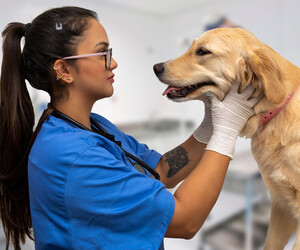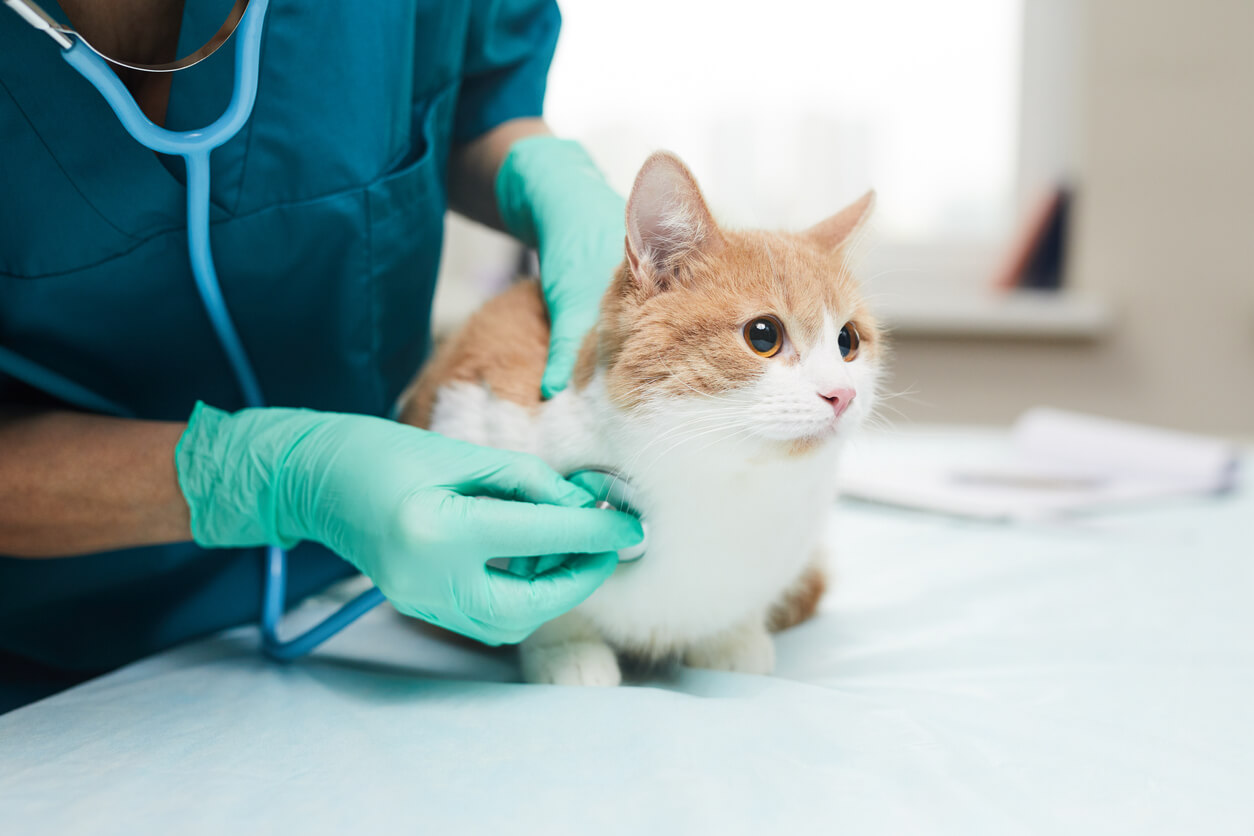The Role of Pet Vaccinations in Fighting Serious Health Issues for Your Pets
The Role of Pet Vaccinations in Fighting Serious Health Issues for Your Pets
Blog Article
Vaccination Standards From Your Trusted Veterinarian
Vaccination standards offered by your trusted vet play a vital function in safeguarding your animal's health and wellness. Core injections are basic for all animals, while non-core vaccines can be tailored to ecological exposures and details way of lives. Comprehending the nuances of vaccination schedules, which begin as very early as 6 to eight weeks, is crucial for optimal security. Furthermore, dealing with typical mistaken beliefs bordering vaccines can additionally boost pet dog proprietors' confidence in these preventive actions. As we check out these essential elements, it comes to be increasingly clear why routine appointments with your veterinarian are indispensable for informed decision-making.

Relevance of Inoculations
Vaccinations play a critical function in protecting family pets versus a range of avoidable diseases. By promoting the body immune system to recognize and combat specific microorganisms, vaccinations significantly minimize the incidence of transmittable illness that can impact a pet dog's health and wellness and long life. Not just do inoculations secure specific pets, yet they likewise add to herd immunity, thus minimizing the general occurrence of diseases in the pet population.
Timely inoculations aid to mitigate the spread of illness such as rabies, parvovirus, and distemper, which can have serious consequences for both humans and pet dogs. Furthermore, vaccinations are usually a requirement for boarding facilities, grooming solutions, and pet parks, making them crucial for those that want to mingle their animals.

Core Vaccinations for Pet Dogs
While the details vaccination demands of pets can differ based upon specific factors, core injections are globally suggested to shield versus the most typical and significant conditions (Vet Enterprise). Core vaccinations are those considered essential for all family pets, despite their way of life or geographical area, as they guard versus very transmittable and potentially deadly illnesses
For dogs, the core vaccines include those for canine distemper, parvovirus, adenovirus (hepatitis), and rabies. Adenovirus can result in liver disease, while rabies is a zoonotic disease that postures a risk to both pet dogs and people.
In felines, core injections incorporate feline panleukopenia, feline calicivirus, feline herpesvirus (rhinotracheitis), and rabies. Feline panleukopenia is a very contagious viral illness that influences the immune system and intestines. Calicivirus and herpesvirus are significant contributors to upper breathing infections in felines, while rabies continues to be an essential issue for public health.
Speak with your vet to ensure your pet dogs get their core vaccinations on routine.
Non-Core Vaccines Explained
Non-core vaccines are tailored to resolve specific risks connected with an animal's setting, way of living, and direct exposure to particular illness. Unlike core vaccines, which are generally suggested for all pet dogs, non-core vaccinations are considered based on private circumstances. These injections are especially crucial for animals that may experience distinct virus because of their geographical location, travel practices, or tasks.
Instances of non-core injections include those for Bordetella bronchiseptica, which is connected to kennel coughing, and Lyme illness, triggered by ticks. Family pets that frequently interact with various other animals, such as those in boarding centers, canine parks, or grooming settings, might take advantage of Bordetella vaccination. If you live in a location where Lyme disease is widespread, immunizing versus this illness can be a prudent selection for outdoor-loving pet dogs.
Other non-core vaccines might consist of those for leptospirosis, canine flu, and feline leukemia, relying on the particular risk variables present. It is necessary to have a comprehensive conversation with your veterinarian about your animal's lifestyle and the potential requirement for these vaccinations, making sure a customized inoculation approach that finest secures your furry buddy.
Inoculation Arrange Summary
:max_bytes(150000):strip_icc()/veterinarian-526081-final-d02935e28abf4e4a9b4dc25b5d0f2cc8.png)
As animals develop, it is important to stick to the suggested booster inoculations. Emergency Vet. For grown-up pets, core vaccines are normally given every one to three years, depending upon the details vaccine and regional policies. Non-core vaccinations may be encouraged based on lifestyle elements and regional disease frequency, necessitating a tailored technique
Regular vet exams are critical for upgrading vaccination timetables. Your vet can offer assistance on one of the most appropriate booster shots for your pet, factoring in age, health standing, and ecological risks. By remaining proactive and notified, family pet owners can ensure official statement their fuzzy buddies obtain reliable and prompt vaccinations, thus protecting their health and wellness and well-being throughout their lives.
Common Myths About Vaccinations
Mistaken beliefs regarding pet vaccinations can cause complication and unwillingness amongst animal owners pertaining to the immunization process. One prevalent myth is that vaccines are unneeded for indoor animals. While it's true that indoor pet dogs face lower threats, they are not entirely unsusceptible to diseases, as pathogens can be presented through various ways, including human clothes and other pets.
Another false impression is that vaccines can create the conditions they intend to stop. Actually, most injections have suspended or undermined virus, which can not trigger disease in healthy pets. Some pet owners also believe that their pets should not be vaccinated if they are already healthy; nonetheless, vaccinations are a proactive procedure that helps stop the beginning of disease.
In addition, lots of family pet proprietors fear that vaccines will certainly lead to long-lasting wellness complications. The advantages of inoculation-- securing animals from possibly dangerous diseases-- far surpass the risks.
Verdict
In recap, adherence to inoculation guidelines is essential for making sure the health and wellness and longevity of family pets. Resolving typical myths bordering inoculations better enhances the significance of notified decision-making in pet treatment.
Not only do inoculations safeguard specific pets, but they additionally contribute to herd immunity, thus lowering the general prevalence of diseases in the animal population.
Misunderstandings concerning pet dog inoculations can lead to confusion and hesitation among pet proprietors concerning the immunization process. While it's real that interior pets deal with lower risks, they are not totally immune to illness, as virus can be introduced through different ways, including human clothes and various other animals.
Some pet proprietors likewise believe that their pet dogs ought to not be vaccinated if they are currently healthy; however, vaccinations are a positive procedure that aids stop the onset that site of illness.
The benefits of inoculation-- protecting animals from potentially dangerous conditions-- far exceed the risks.
Report this page